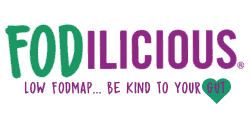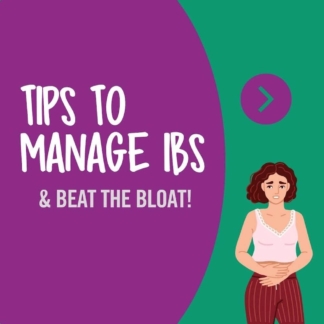If you suffer from irritable bowel syndrome (IBS) or are looking to improve your gut health, it’s important to understand the best diet for managing these conditions. This comprehensive guide will provide you with information on what foods to eat and avoid in order to achieve optimal digestive wellness.
UNDERSTAND THE BASICS OF IBS AND GUT HEALTH
Before diving into the specifics of an IBS diet and improving gut health, it’s important to have a basic understanding of what IBS is and how it affects the gut. Irritable bowel syndrome is a common disorder that affects the large intestine. It can cause a variety of symptoms, including abdominal pain, bloating, gas, diarrhea, and constipation. The exact cause of IBS is unknown, but it is believed to be a combination of factors, including abnormal muscle contractions in the intestine, inflammation, and changes in the gut microbiome. By understanding the basics of IBS and gut health, you can better manage your symptoms and improve your overall digestive wellness.
FOLLOW A LOW FODMAP DIET
One of the most effective diets for managing IBS and improving gut health is the low FODMAP diet. FODMAPs are a group of carbohydrates that are poorly absorbed in the small intestine and can ferment in the colon, leading to symptoms like bloating, gas, and diarrhea. By following a low FODMAP diet, you can reduce your intake of these fermentable carbohydrates and alleviate your symptoms. Foods to avoid on a low FODMAP diet include certain fruits, vegetables, grains, dairy products, and sweeteners. It’s important to work with a registered dietitian or healthcare professional to properly implement and customise a low FODMAP diet for your specific needs.
INCORPORATE FIBRE INTO YOUR DIET
While it may seem counterintuitive, incorporating fibre into your diet can actually help manage IBS symptoms and improve gut health. Fibre helps regulate bowel movements and can alleviate constipation or diarrhea, which are common symptoms of IBS. However, it’s important to choose the right types of fibre. Soluble fibre, found in foods like oats, bananas, and chia seeds, can help soften stools and ease digestion. Insoluble fibre, found in foods like whole grains, nuts, and vegetables, adds bulk to the stool and promotes regular bowel movements. It’s important to gradually increase your fibre intake and drink plenty of water to prevent any potential digestive discomfort. Consulting with a healthcare professional or registered dietitian can help you determine the right amount and types of fibre to incorporate into your diet for optimal gut health. Try Fodilicious Granola for breakfast and Cookie Buttons for a healthy snack both ranges are IBS and gut friendly and suitable for all stages of the Low FODMAP diet .
STAY HYDRATED AND LIMIT CAFFEINE
Staying hydrated is crucial for maintaining optimal gut health and managing IBS symptoms. Drinking enough water helps soften stools and prevent constipation. Aim to drink at least 8 cups of water per day, and more if you are physically active or live in a hot climate. On the other hand, it’s important to limit your intake of caffeine, as it can irritate the digestive system and worsen IBS symptoms. Caffeine is found in coffee, tea, energy drinks, and some sodas. If you enjoy caffeinated beverages, try to limit your intake to one or two cups per day and opt for decaffeinated options whenever possible. Remember, everyone’s tolerance to caffeine is different, so listen to your body and adjust your intake accordingly. Try the world’s first low fodmap energy drinks by Fodilicious, certified for all stages of the low FODMAP diet, IBS, gut friendly, vegan, plant-based, gluten free, allergy free and 100% natural, caffeine free, zero sugar and zero calories. Packed with energising B vitamins our new natural drinks range will boost your energy levels, revitalising you throughout the day!
AVOID TRIGGER FOODS AND IRRITANTS
One of the key strategies for managing IBS and improving gut health is to avoid trigger foods and irritants. These are foods that can exacerbate symptoms and cause discomfort. Common trigger foods include dairy products, fatty foods, spicy foods, and foods high in fibre. It’s important to pay attention to your body and identify which foods trigger your symptoms. Keeping a food diary can be helpful in tracking your diet and symptoms. Once you have identified your trigger foods, try to eliminate or limit them from your diet. Instead, focus on incorporating foods that are gentle on the digestive system, such as lean proteins, cooked vegetables, and easily digestible grains. By avoiding trigger foods and irritants, you can help reduce inflammation and promote a healthier gut.


 fodiliciousltd
fodiliciousltd
